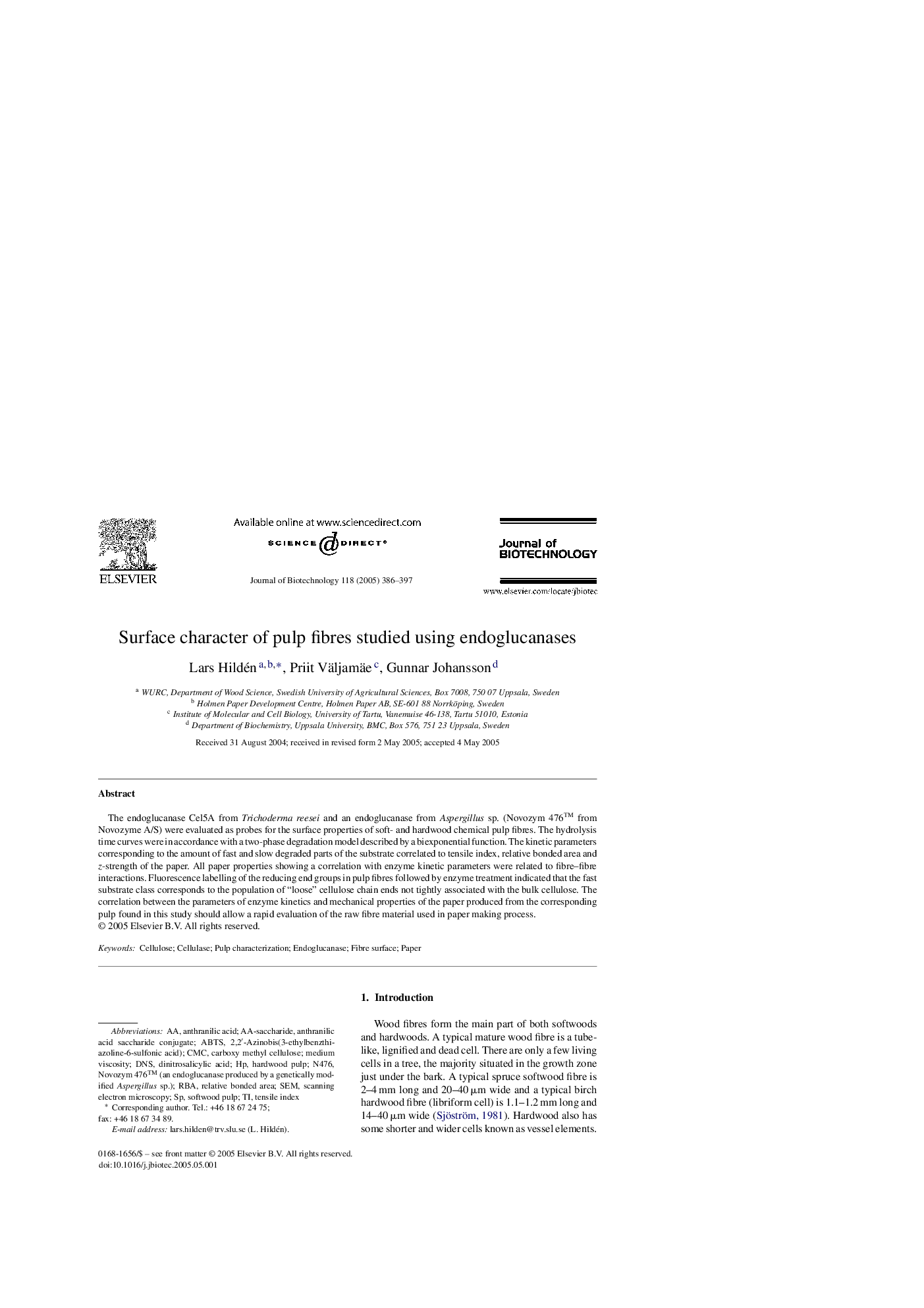| Article ID | Journal | Published Year | Pages | File Type |
|---|---|---|---|---|
| 9604318 | Journal of Biotechnology | 2005 | 12 Pages |
Abstract
The endoglucanase Cel5A from Trichoderma reesei and an endoglucanase from Aspergillus sp. (Novozym 476⢠from Novozyme A/S) were evaluated as probes for the surface properties of soft- and hardwood chemical pulp fibres. The hydrolysis time curves were in accordance with a two-phase degradation model described by a biexponential function. The kinetic parameters corresponding to the amount of fast and slow degraded parts of the substrate correlated to tensile index, relative bonded area and z-strength of the paper. All paper properties showing a correlation with enzyme kinetic parameters were related to fibre-fibre interactions. Fluorescence labelling of the reducing end groups in pulp fibres followed by enzyme treatment indicated that the fast substrate class corresponds to the population of “loose” cellulose chain ends not tightly associated with the bulk cellulose. The correlation between the parameters of enzyme kinetics and mechanical properties of the paper produced from the corresponding pulp found in this study should allow a rapid evaluation of the raw fibre material used in paper making process.
Keywords
Related Topics
Physical Sciences and Engineering
Chemical Engineering
Bioengineering
Authors
Lars Hildén, Priit Väljamäe, Gunnar Johansson,
